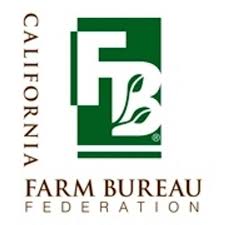 makes agricultural products into targets as trading countries seek to retaliate.
makes agricultural products into targets as trading countries seek to retaliate.The new tariffs of 25 percent on imported steel and 10 percent on imported aluminum do not take effect until next week, but top importers such as the European Union and China have already indicated they would levy their own import duties on American goods, including some agricultural products.
Canada and Mexico, the second and fifth top destinations for California agricultural exports, won't be subject to the tariffs initially, but they could lose their exemptions if renegotiations on the North American Free Trade Agreement fall through.
As the nation's leading agricultural exporters, California farmers have reason to be concerned, though it's still unclear whether or how any tit-for-tat measures would affect the state's farm exports.
"We're not seeing anything directly in the markets," said Stuart Woolf, president and CEO of Woolf Farming in Fresno County. "I think we're all waiting to see how it unfolds."
The company produces almonds, pistachios, wheat, garlic, hay, onions, tomatoes, grapes and walnuts, and exports many of its almonds to China and India. Though his export business remains unchanged at this point, Woolf said threats of retaliatory actions from countries such as China represent "a cause for concern," by creating more uncertainty for the almond market.
"If I was a buyer and I have concerns about uncertainty, I may be thinking, what alternatives do I have? Do I buy fewer almonds if they're going to be vastly more expensive? Do I look for substitutes?" he said.
But he pointed out that even if import tariffs were imposed on California almonds, foreign buyers have few options for finding the nuts, as the Golden State accounts for 85 percent of the world's production.
"They're either going to buy less or they're going to possibly find some substitute, but they don't have a lot of choices," he said. "If anything, I would think it would encourage people to buy up early and often to secure their positions before any tariffs or something else comes into play. But we just haven't seen it."
Those who ship California walnuts, pistachios and wine also said they have yet to experience any impacts on their export business related to the fallout of the new tariffs.
Even so, Nancy Light, spokeswoman for the Wine Institute, said "we feel strongly that wine should not be drawn into a trade dispute that is about other products."
Kim Kennedy, president of Orland-based Omega Walnuts, which ships most of its production overseas, underscored how trade barriers such as tariffs could affect export markets. He noted that Turkey recently reduced its import tariffs substantially on walnuts, which has bolstered California exports of inshell walnuts to that country.
Though there have been no significant ramifications at this point, Chris Crutchfield, president and CEO of American Commodity Co. in Williams, which exports California rice, said he is paying close attention to reactions from China and the EU, which has issued a retaliation list that targets U.S. products such as orange juice, cranberries and rice.
The EU, he noted, imports about 55,000 tons of U.S. rice, valued at $42 million, with a "good portion" of that rice coming from California.
"U.S. rice exports to the EU are already constrained by a pretty complex system of quotas and duties, and certainly any increase in tariffs there from a retaliatory perspective would be a major setback for our progress," Crutchfield added.
With respect to China, the country signed a phytosanitary agreement with the U.S. last year that will allow the import of U.S. rice into China, but the two countries are still working on implementation, which requires U.S. exporters to go through Chinese inspections and other activities.
China has potential to be a "great market" for California rice, Crutchfield said, adding that he fears announcement of the new tariffs could sour relations with China, stalling implementation.
Though farm exports are easy targets for foreign governments seeking to push back on U.S. import restrictions, Jock O'Connell, an international trade economist based in Sacramento, said he doesn't think California farmers should worry too much.
He noted that in past trade disputes, "foreign countries have been very selective in identifying products that they feel are politically sensitive to people in political power in Washington."
But this is the first round, he noted. If trade disputes escalate and the U.S. responds by ratcheting up a trade war, "then you'll likely see a much broader range of products being affected, but right now, we're probably going to escape serious damage, especially agriculture."
"If I'm a California farmer and I'm growing specialty crops, I wouldn't be concerned about what's going to happen in the next year," he said.
(Ching Lee is an assistant editor of Ag Alert. She may be contacted at clee@cfbf.com.)
Source: Reprinted with permission: California Farm Bureau Federation








